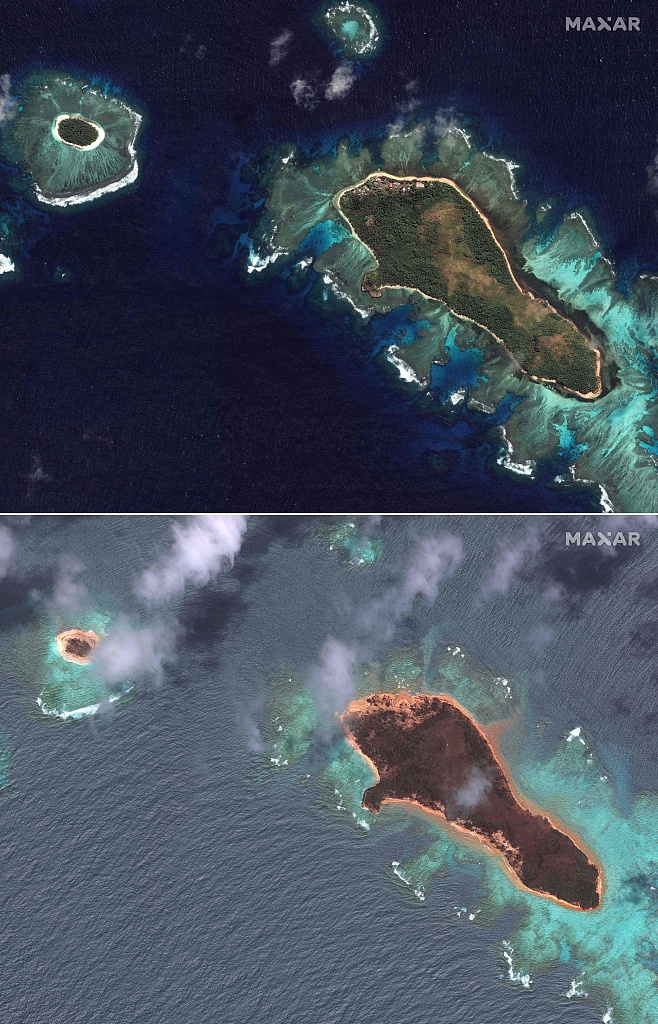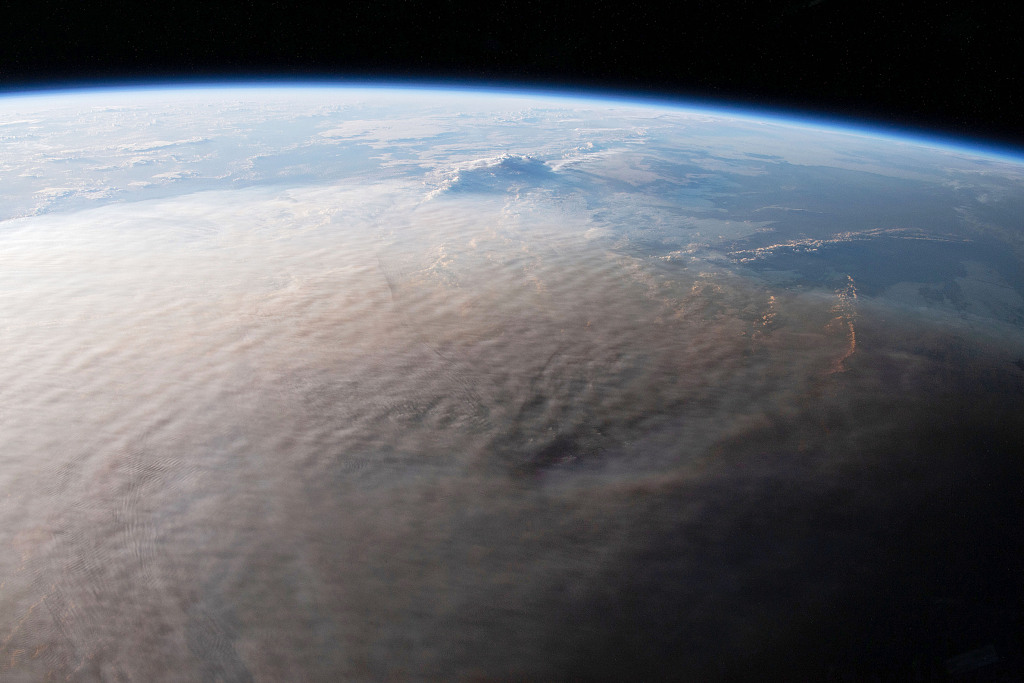The cooling effect of Tonga's volcano eruptions is much smaller than initially thought and not strong enough to overwhelm longer-term global warming tendency, an analysis has shown.
The Hunga Tonga-Hunga Ha'apai volcano near Nuku'alofa, capital of Tonga, erupted violently and triggered a tsunami in January.
It has raised wide public concern about the impact on global climate since sulfur dioxide injected into the stratosphere after eruptions was oxidized and converted to sulfate aerosols.

This combination of two satellite images released by Maxar Technologies on January 22, 2022 shows before and after images on August 17, 2020 (top) and January 20, 2022 (bottom) of the Mango Islands in Tonga from the eruption of Hunga Tonga-Hunga Ha'apai volcano. /CFP
This combination of two satellite images released by Maxar Technologies on January 22, 2022 shows before and after images on August 17, 2020 (top) and January 20, 2022 (bottom) of the Mango Islands in Tonga from the eruption of Hunga Tonga-Hunga Ha'apai volcano. /CFP
These aerosols linger for one or two years and reduce incoming solar radiation, resulting in a short period of global cooling.
A previous estimate placed the reduction in global surface air temperature at between 0.03 and 0.1 degrees Celsius over the next one to two years.
The study, led by Chinese scientists and published Tuesday in the journal Advances in Atmospheric Sciences, showed that the strongest cooling impact of the volcano would be more than 0.01 degrees Celsius in parts of Australia and South America and the cooling over most of China will be less than 0.01 degrees Celsius.
They found that the global surface temperature will be decreased by only 0.004 degrees Celsius in 2023 due to the eruptions.

This photograph taken by an astronaut aboard the International Space Station on January 16, 2022 shows ash over the South Pacific following the eruption of the Hunga Tonga-Hunga Ha'apai volcano. /CFP
This photograph taken by an astronaut aboard the International Space Station on January 16, 2022 shows ash over the South Pacific following the eruption of the Hunga Tonga-Hunga Ha'apai volcano. /CFP
One or two volcanic eruptions are not enough to alter the long-term global warming trend unless there are clusters of volcanic eruptions that can persist through centuries, as is suggested to have happened during the Little Ice Age in the past millennium, according to the study.
"Southern Hemisphere volcanic eruption emissions are largely confined to circulating in the same hemisphere and the tropics, with less of an impact on the Northern Hemisphere," said Zhou Tianjun, the paper's corresponding author and a researcher at the Institute of Atmospheric Physics at the Chinese Academy of Sciences.
"This, in turn, leads to a weaker global cooling than those of northern hemispheric and tropical volcanoes," Zhou added.
For more:
Could Tonga volcano eruption cool the climate?
(Cover image via CFP.)
(If you want to contribute and have specific expertise, please contact us at nature@cgtn.com.)
Source(s): Xinhua News Agency

